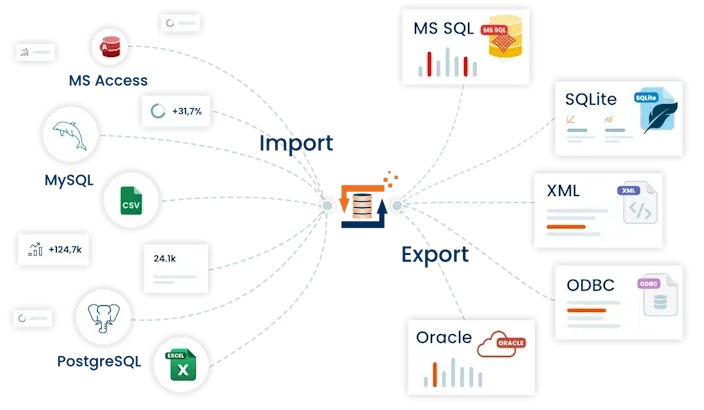- Posts: 109
Read side link
- JD Cox
- Topic Author
- Offline
- User
-

Less
More
9 years 11 months ago #2471
by JD Cox
Read side link was created by JD Cox
Hey guys, a copy of our current WMS resides on each user’s terminal server desktop. I want to connect to a table (not linked) on the read side stored there.
I tried > C:\Documents and Settings\%userprofile%\Desktop\MyDateBase.mdb< in the Login information with negative results.
Is there a way to always connect to the user’s desktop copy?
Thanks JD
I tried > C:\Documents and Settings\%userprofile%\Desktop\MyDateBase.mdb< in the Login information with negative results.
Is there a way to always connect to the user’s desktop copy?
Thanks JD
Please Log in or Create an account to join the conversation.
- FlowHeater-Team
-

- Offline
- Admin
-

Less
More
- Posts: 447
9 years 11 months ago - 9 years 11 months ago #2472
by FlowHeater-Team
Best wishes
Robert Stark
Replied by FlowHeater-Team on topic Read side link
Hi JD,
Environment variables are not supported for parameters directly in FlowHeater but you can use FlowHeater Parameters instead.
There are two ways to overtake environment variables at definition start time.
NOTE: You have to use $UP$\Desktop\MyDataBase.mdb instead of C:\Documents and Settings\%userprofile%\Desktop\MyDateBase.mdb
C# .NET Script to obtain environment variables
Environment variables are not supported for parameters directly in FlowHeater but you can use FlowHeater Parameters instead.
There are two ways to overtake environment variables at definition start time.
- In the
Batch Module
you could set them on command line with the command line option /SetParameter
e.g. FHBatch.exe /SetParameter UP=%USERPROFILE% Your-Import-Export-Definition.fhd - With .Net Script Heater and the simple Script below. You have to switch “Exceute when” to “Start” in the Heater options.
NOTE: You have to use $UP$\Desktop\MyDataBase.mdb instead of C:\Documents and Settings\%userprofile%\Desktop\MyDateBase.mdb
C# .NET Script to obtain environment variables
Code:
public object DoWork()
{
// Set the FlowHeater Parameter $USERPROFILE$ with the content of the environment variable %USERPROFILE%
Parameter["UP"].Value = Environment.GetEnvironmentVariable("USERPROFILE");
// return value not required at "Start"
return null;
}
Best wishes
Robert Stark
Attachments:
Last edit: 9 years 11 months ago by FlowHeater-Team.
Please Log in or Create an account to join the conversation.
- JD Cox
- Topic Author
- Offline
- User
-

Less
More
- Posts: 109
9 years 11 months ago #2473
by JD Cox
Replied by JD Cox on topic Read side link
Robert,
That works great…as always, I can’t thank you enough. With our growing company this will be a great asset for us by allowing multiple users to run the end of day tasks simultaneously as opposed to one user.
JD
That works great…as always, I can’t thank you enough. With our growing company this will be a great asset for us by allowing multiple users to run the end of day tasks simultaneously as opposed to one user.
JD
Please Log in or Create an account to join the conversation.
Time to create page: 0.282 seconds


